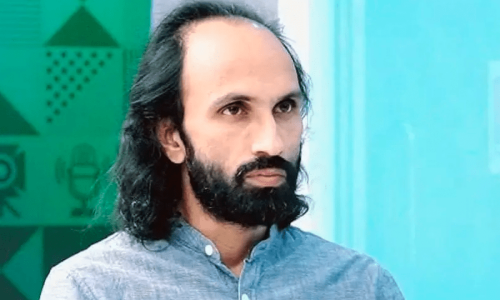WASHINGTON, July 31: There’s little religious freedom even in the countries where the United States has direct military presence, says the US State Department, pointing out that in Afghanistan courts interpret Islamic law to punish non-Muslims for exercising their faith.
According to the report, in Afghanistan the constitution and policies restrict religious freedom and the government generally enforce legal restrictions. The government did not demonstrate a trend towards either improvement or deterioration in respect for and protection of the right to religious freedom.
The lack of government responsiveness to the needs of or protection for minority religious groups and individuals contributed to constraints on religious freedom.There were reports of societal abuses or discrimination based on religious affiliation, belief, or practice. Popular suspicion regarding outside influence and the motivations of foreigners led to negative societal opinion of international community efforts and donor projects.
These were often incorrectly associated with Christianity and proselytism.
Within the majority Muslim population, relations among the different sects continued to be difficult. Although the Shia minority continued to face some societal discrimination, its relationship with the Sunni majority showed slight improvement.
In Iraq, the constitution provides for religious freedom. It also recognises Islam as the official religion, mandates that Islam be considered a source of legislation, and states that no law may be enacted that contradicts the established provisions of Islam.
However, it also states that no law may be enacted that contradicts principles of democracy or the rights and basic freedoms stipulated in the constitution.
Officials sometimes misused their authority to limit freedom for other sects. However, the government continued to call for tolerance and acceptance of all religious minorities.
In Iran, the constitution and policies do not protect religious freedom and the government severely restricted religious freedom.
Reports of imprisonment, harassment, intimidation, and discrimination based on religious beliefs continued during the year.
The constitution states that Ja’afari Shia Islam is the official state religion. It provides that “other Islamic denominations are to be accorded full respect” and officially recognises three non-Islamic religious groups — Zoroastrians, Christians, and Jews — as religious minorities.
These three religions are allowed to practise freely under the constitution as long as their members do not proselytise.
While not discussed in the constitution, the government considers Baha’is to be apostates and defines the Baha’i Faith as a political “sect”.
During 2011, government-controlled broadcast and print media intensified negative campaigns against religious minorities, particularly Baha’is.
In Saudi Arabia, the laws and policies restrict religious freedom and the government generally enforced these restrictions. The government did not demonstrate a trend towards either improvement or deterioration in respect for or protection of the right to religious freedom.
Freedom of religion is neither recognised nor protected under the law and is severely restricted in practice.
The public practice of any religion other than Islam is prohibited, and there is no separation between state and religion.
The government generally permitted Shia religious gatherings and non-Muslim private religious practices. Some Muslims who did not adhere to the government’s interpretation of Islam faced significant political, economic, legal, social, and religious discrimination, including limited employment and educational opportunities, under-representation in official institutions, restrictions on religious practice, and restrictions on places of worship and community centres.
Efforts to revise school textbooks were on-going at year’s end. The government reported completing revisions in half the grades, but Arabic and religion textbooks continued to contain overtly intolerant statements against Jews and Christians as well as intolerant references by allusion against Shia and Sufi Muslims and other religious groups.











































Dear visitor, the comments section is undergoing an overhaul and will return soon.